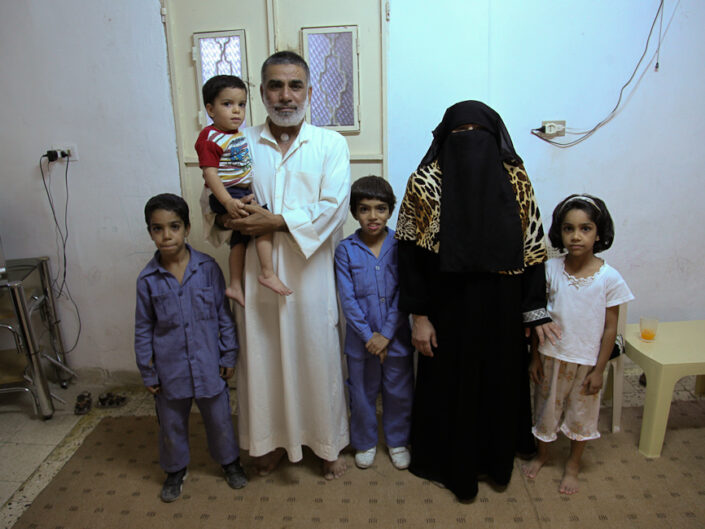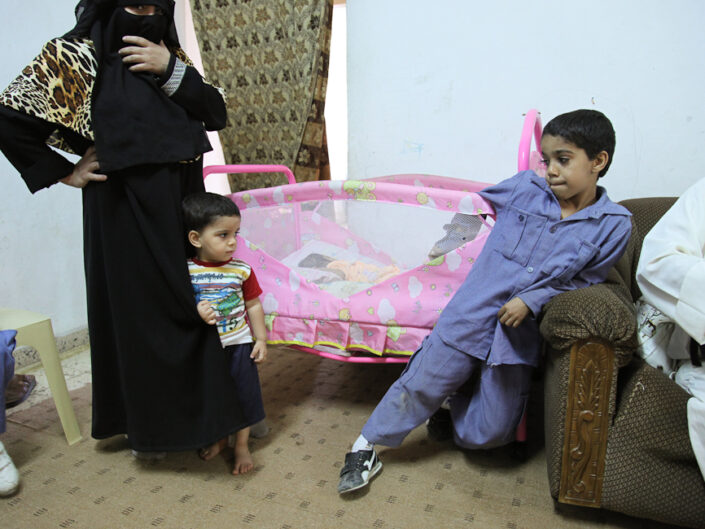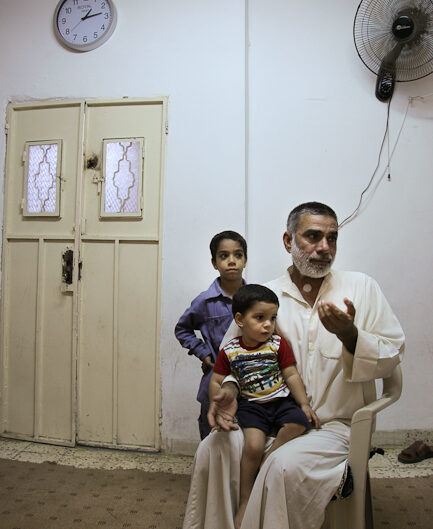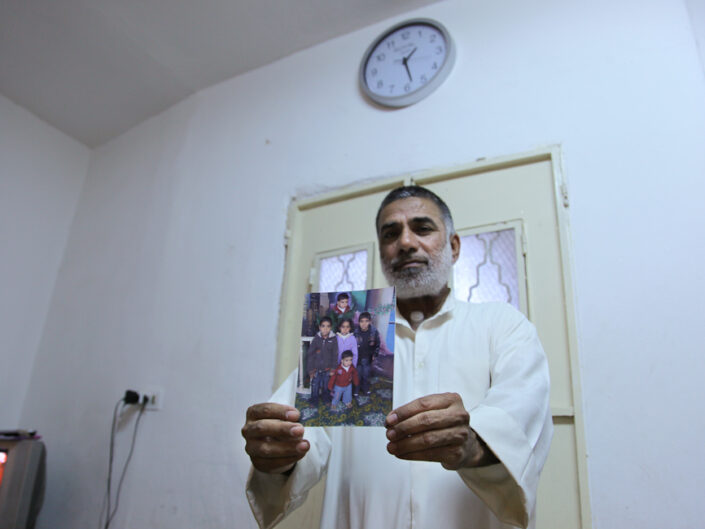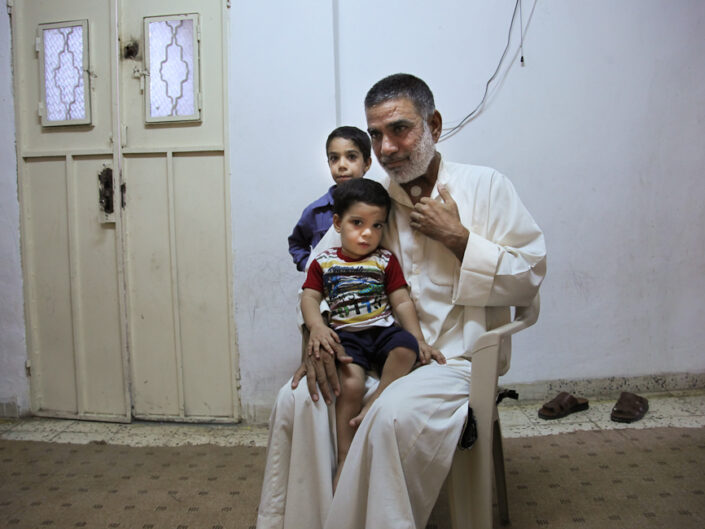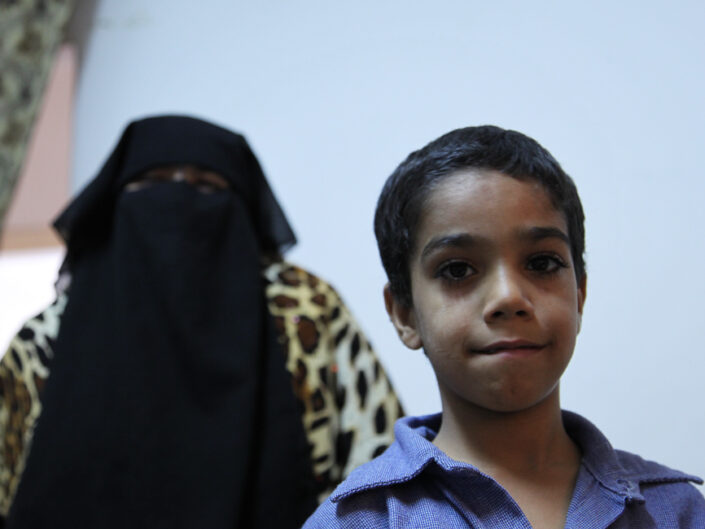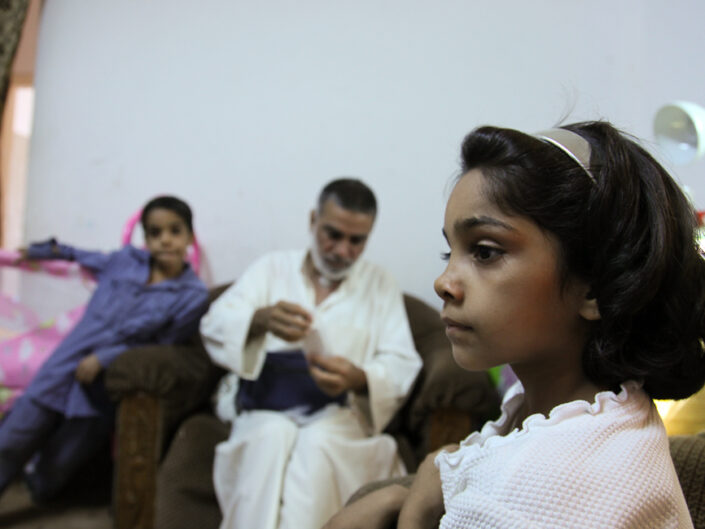ICMC Fleeing
Ahmed* rocks one of his sons in his lap as his wife and four other children surround him on a threadbare sofa. He and his family live in a small apartment in Hashimi Shamali in east Amman. A small TV plays softly in the corner, next to a crib for the 5-month-old baby. He speaks with the aid of an artificial larynx after a cancer operation earlier this year provided by the ICMC/ Caritas project.
Ahmed worked as a house painter in Basra before the U.S. invasion of Iraq in 2003. He then worked as a security guard for the United Nations at the Umm Qasr port. He still has his old UN ID badge to show to visitors. His job brought him trouble – insurgents bombed his house as a warning in 2005, destroying one of their rooms.
“I was frightened because the Shi’as were tracking us and following us,” he says. “They attacked the Sunni mosques around us, and some of our family members were killed.”
He quit his job at the UN, the last one he’s had until now. The family moved four times within Basra attempting to avoid the violence, before they finally moved to Baiji in northern Iraq, and then finally to Amman in 2009.
His wife Noor* enthusiastically reports that the three children who are in school are doing well, and that education in Jordan is much better than in Iraq. English classes, however, have been the biggest challenge for the children because English is introduced in school much later in Iraq than in Jordan and therefore her children are lagging behind.
The family doesn’t have relatives in Jordan, and so far they have not built any close relationships with their neighbors. While Ahmed attends English classes twice a week and visits with his Iraqi friends at the mosque, Imani rarely leaves the house.
“I don’t spend time with others,” she says as she cradles her baby. “I don’t have close friends here, and I haven’t seen my mother in three years.”
The family is waiting to be resettled, but have not yet heard whether they have been approved for resettlement.
Text by Laura Ashbaugh / ICMC. Photographs by Andres Morales
